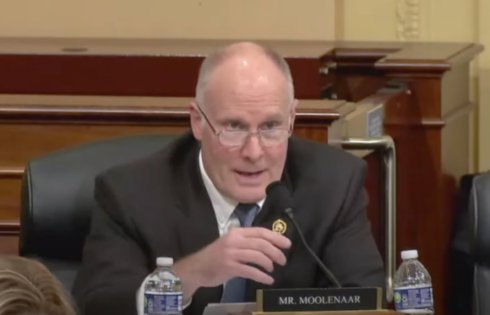Millions of low-income parents welcome school choice and deserve school choice. It gives them freedom, options — it ensures their children are not trapped in failing schools. It provides a fighting chance to help their kids make something of themselves.
“Education is the civil rights issue of our time,” said President Donald Trump last week.
Jason Riley writes in The Wall Street Journal:
Since winning the election, Mr. Trump has tapped a school-choice stalwart in Betsy DeVos* to head the Education Department. In a joint address to Congress last week, he called for an education bill that would allow low-income families “to choose the public, private, charter, magnet, religious or home school that is right for them.” On Friday, Mr. Trump and Mrs. DeVos visited a Catholic school in Orlando, Fla., where hundreds of low-income students attend with the help of the Florida Tax Credit Scholarship program.
The Washington Post reported that Mr. Trump’s was the first visit to a Catholic school by a sitting president since Ronald Reagan in 1984 and “a clear signal that the Trump administration intends to push forward with expanding school choice as a key priority.” That’s welcome news to millions of low-income minority parents nationwide who have long expressed overwhelming support for reforms that would free their children to matriculate at schools not controlled by teachers unions.
President Obama also claimed to support school choice, but he was referring only to those education options approved by the teachers unions that bankroll the Democratic Party. In practice, the Obama administration worked to shut down voucher programs in Washington and elsewhere and thus reduce choice for the disadvantaged. For Mr. Trump, school choice means the parents get to decide—not the president or special-interest groups. There’s a reason why 56% of voters tell pollsters that President Trump is doing what he said he would do.
Milwaukee appears to be a great example of how school choice can be such a positive. A recent study on the city’s nearly 30-year-old school voucher program found that it will “generate nearly $500 million in economic benefits to the city over the next 20 years,” the Heartland Institute reports. That’s because “students who attend high-performing schools are more likely to graduate from high school, be employed, stay out of prison, and be less dependent on welfare and other government services.”
It stands to reason low-income families, who in general are trapped into sending their kids to failing schools, would benefit from school choice because they would have the freedom to send their kids to high-performing schools, charter schools, religious schools, private schools, vocational schools, specialty schools — giving their children a better chance at success in life. Not every student fits in at a regular public school. Parents deserve a chance to allow their children’s aptitudes to flourish where they’ll fit best. They know their kids better than Washington bureaucrats.
Many think tank watchdogs can easily poke holes in Leftist’s claim that school choice’s real goal is to dismantle public education.
“[T]he nearly unanimous conclusion of almost two-dozen empirical studies is that increased competition resulting from the introduction of a school choice program improves the performance of public schools (one study found no discernable impact and none found harm). If lawmakers truly wanted to ‘dismantle’ public schools, that’s an odd way to go about it,” the CATO Institute reports.
The argument that school choice hurts low-income students is disingenuous at best.
“The conscience of a liberal should struggle with supporting a system in which the children of the poor are consigned to attend the school that is assigned to them by public officials, regardless of its quality, whereas more affluent parents can shop for the school they want for their children by purchasing a home in the vicinity of the public school they prefer or paying private school tuition,” argues John White for the Brookings Institution. “A better liberal position is to support non-biased admissions policies and transparent measurement for all schools that accept publicly funded students, regardless of the sector in which they operate.”
“… A country that is serious about its education system and the civil rights of its people should be serious about making all quality school options available to low-income people. Private schools are an important part of this picture. A long-term approach that defines academic quality and funds nonpublic schools that verifiably meet the definition is both feasible and warranted.”
Jennifer Kabbany is editor of The College Fix.
Like The College Fix on Facebook / Follow us on Twitter




Add to the Discussion